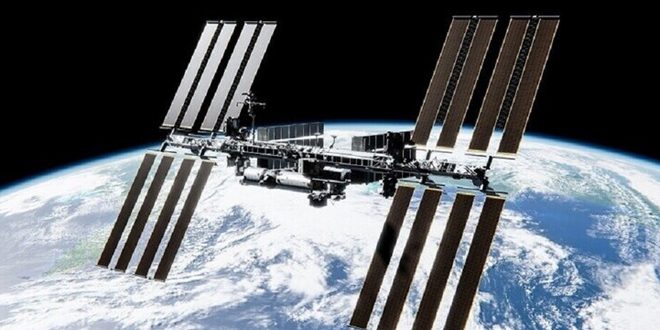Yury Borisov, the newly appointed chief of Russian space agency Roscosmos, reported to Russia’s President Vladimir Putin on Tuesday that Russia will withdraw from the International Space Station (ISS) after 2024.
Although Borisov’s predecessor, Dmitry Rogozin, had repeatedly threatened to do this before, Chinese analysts urged the US to take the warning seriously and reflect on its irresponsible sanctions against Russia that left the latter with no choice.
“You know that we are working within the framework of international cooperation at the International Space Station. Undoubtedly, we will fulfil all our obligations to our partners, but the decision to leave the station after 2024 has been made,” Borisov told Putin, media reports said.
US News network CNN cited a transcript of a meeting posted to the Kremlin’s website, and Putin said “good” after Borisov told him that Roscosmos will begin to build its own space station after 2024.
NASA Administrator Bill Nelson said the agency “is committed to the safe operation of the ISS through 2030, and is coordinating with our partners. NASA has not been made aware of decisions from any of the partners, though we are continuing to build future capabilities to assure our major presence in low-Earth orbit,” the US network CBS News reported.
Launched in 2000, the ISS has been widely viewed as a model of international cooperation and a symbol of post-Cold War cooperation between former rivals the US and Russia, which are also the world’s two space superpowers.
The latest development suggests Russia has come to a point where it has had enough of US humiliation and sanctions, including those predating Russia’s military operation in Ukraine, so that Moscow no longer wants any form of cooperation with Washington, an expert in international relations told the Global Times on the condition of anonymity.
Russia has found itself in a situation in which it has to punish the US, and as it is pulling out of the ISS, it shows the room for cooperation between Russia and the US is shrinking, the expert noted.
If Russia quits the ISS, it would be a huge setback for the common cause for mankind to jointly explore space, and US political manipulation and irresponsible acts would be to blame, he said.
CNN also quoted US State Department spokesperson Ned Price as saying that news that Russia will withdraw from the ISS is “an unfortunate development given the critical scientific work performed at the ISS [and] the valuable professional collaboration our space agencies have had over the years, especially in light of our renewed agreement on spaceflight cooperation.”
The ISS is made up of two primary segments, one managed by NASA and the other by Roscosmos. Russia provides the propellant and thrusters needed to keep the outpost in orbit while NASA provides most of the station’s electrical power, satellite communications and the day-to-day stability provided by four massive gyroscopes, according to CBS News.
If Russia withdraws from the ISS, it would mean that Russia-US space cooperation would end and the US’ attempt to get Russia onboard with its lunar programs would be only a dream, Song Zhongping, a military expert and TV commentator, told the Global Times.
Song pointed out that the US could sustain the ISS without Russia but with way heavier costs. “New investment is called for on research and development for replacement of Russian technology, which can be seen as Russia hitting back at sanctions from the US.”
NASA recently tested its own reboost capability using a Northrop Grumman Cygnus cargo ship, but according to CBS News the agency does not have the capability yet to provide all the propellant and thrusting needed if Russia does, in fact, pull out.
Why has Russia set the date of 2024 for pulling out? Analysts said that it could suggest the matter might be an area for political wrestling in the coming couple of years, with Russia pressuring the US to make concessions over trade.
NASA said in February it intends to keep operating the ISS until the end of 2030, after which the ISS will be deorbited and crashed into a remote part of the Pacific Ocean. Commercially operated space platforms would replace the ISS as a venue for collaboration and scientific research, NASA said.
Some space observers have suggested that Russia’s withdrawal from the project might result in the ISS being cancelled before the set schedule of 2030, so that the US could use the money saved for the building of future commercial outposts. Or NASA might spend the budget on the Artemis program instead, they said.
Pang Zhihao, a Beijing-based space expert, said it is unlikely that China will become a partner when Russia develops its own orbital stations after 2024 as China is building its own Tiangong China Space Station, but China will surely welcome Russia for space cooperation.
China is ready to work with all countries and regions that are committed to the peaceful use of outer space to carry out more international cooperation and exchanges, Foreign Ministry spokesman Wang Wenbin said on April 18 at a daily news briefing.
Wang said foreign astronauts are welcome to visit China’s space station and work with Chinese astronauts to jointly explore the mysteries of the universe and build a community with a shared future for mankind.
Basma Qaddour

